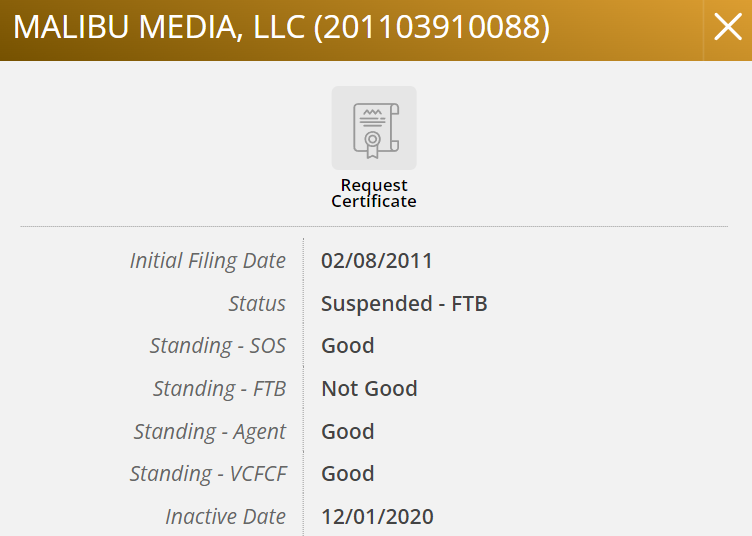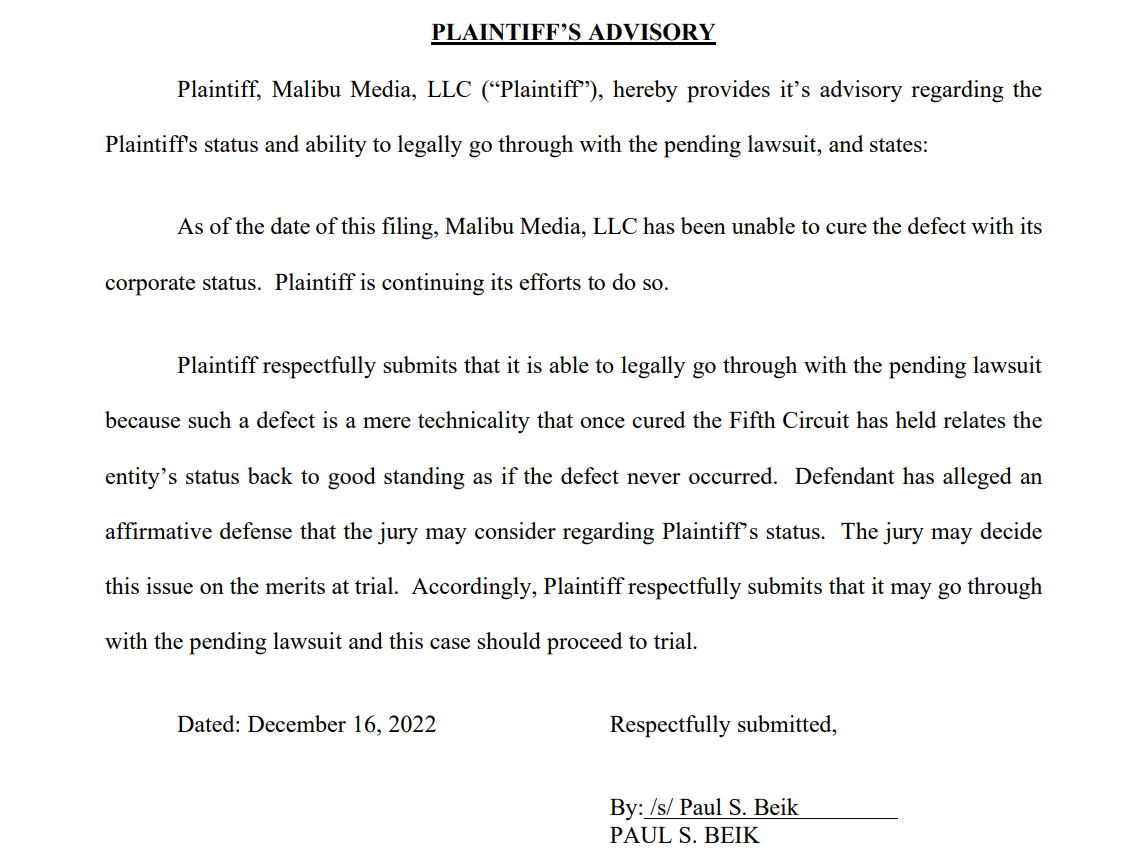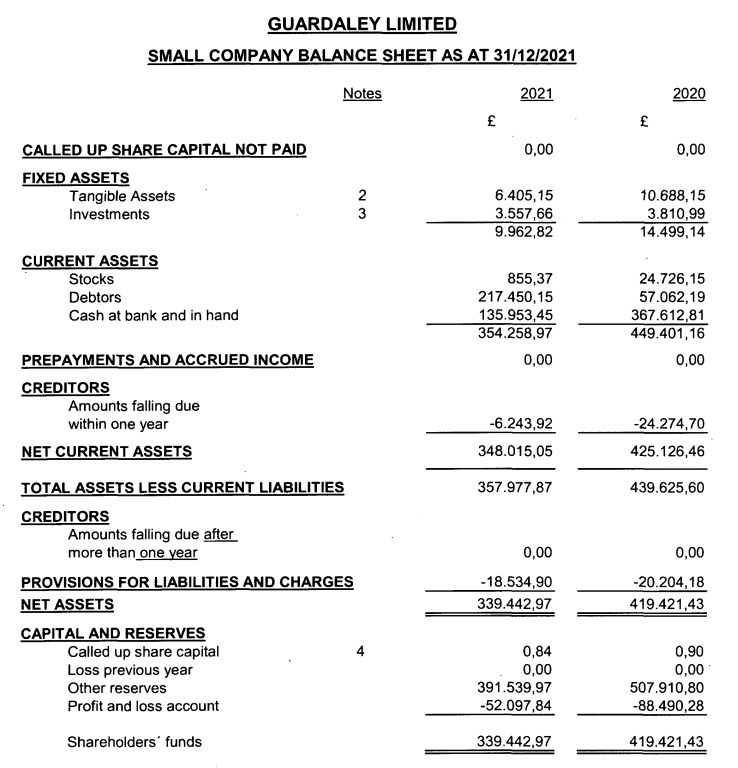 The vast majority of today’s movie-related copyright infringement lawsuits can be linked back to companies working with piracy monetization company, GuardaLey.
The vast majority of today’s movie-related copyright infringement lawsuits can be linked back to companies working with piracy monetization company, GuardaLey.
They begin with piracy tracking firm Maverickeye monitoring IP addresses allegedly sharing certain movies online. Those IP addresses later become evidence in court processes where the owners of the monitored movies ask the court to compel ISPs to match the IP addresses with specific subscribers, so they can be pursued directly.
The fundamental problem is that an IP address isn’t a person, and the person identified as the account holder/billpayer isn’t necessarily the infringer, especially in homes where many people have access to the internet. So, in cases where the actual pirate can’t be identified, GuardaLey-affiliated entities claim that since the billpayer failed to prevent piracy, they can be seen as ‘authorizers’ of someone else’s infringing activities.
Voltage Lawsuit in Canada Runs Into Trouble
A 2018 lawsuit filed in Canada by U.S. movie company Voltage Holdings aimed to uncover the identities of 110 ‘John Doe’ defendants who allegedly pirated the movie ‘Revolt’. After obtaining their personal details, Voltage settled or dismissed cases against 80. The 30 remaining internet account holders, all recipients of earlier infringement warnings via their ISPs, were sued by Voltage. None filed a response.
Supported by evidence provided by GuardaLey’s Benjamin Perino, who also wrote Maverickeye’s tracking software, Voltage moved for default judgments against the absent defendants. The Canadian Internet Policy and Public Interest Clinic (CIPPIC) intervened on behalf of the internet billpayers, arguing that while Voltage had successfully identified account holders, they had no evidence that these people were the infringers.
Justice Angela Furlanetto rejected the idea that the billpayers must disprove their association with the alleged infringing activity. It is up to the plaintiffs to show, on the balance of probabilities, that the named defendants (the billpayers) are also the infringers, the Judge said.
Predictably, Voltage said it could also take action against billpayers if it believes they authorized or allowed someone else’s infringing activity. When Voltage produced no evidence to support its authorization claims, the Judge
refused to issue default judgments
, at least until it could.
Voltage Files An Appeal
In a 36-page memorandum submitted to Canada’s Federal Court of Appeal, Voltage outlines two legal theories; either the billpayers pirated the movie themselves (direct infringement), or they authorized someone else’s direct infringement by allowing them to continue pirating Voltage’s movie, despite receiving warning notices from their ISPs.
Voltage says that in the case of direct infringement, it did “all that is technically possible” when it identified the name of the person responsible for paying the bill on the accounts in question. Voltage says that it is partly relying on a “shifting of the tactical burden” or a “negative inference to prove that the direct infringer was the account holder.”
In the original case, Justice Furlanetto said that Voltage could conduct further discovery to identify the actual infringers. If that failed, even in the face of non-compliance, the burden of proof would not change and negative inferences would not be drawn. Voltage describes this as an error in law.
“[T]he evidence before the Court will be the same whether a Default Defendant fails to participate in the action 4 times or 5 times,” Voltage writes. “Even if discovery takes place, Voltage is not obliged to put this information to the Court to its prejudice, and in either case, Voltage has made out its case with the evidence available in a default proceeding.”
Authorization and Errors in Law
With its authorization claims, Voltage gets two bites at billpayers. Direct infringement and authorization of infringement are both copyright offenses but, in practical terms, Voltage wants to argue a) the billpayer is the direct infringer, and therefore liable, or b) the billpayer is not the direct infringer, but is still liable. It has zero evidence to prove either.
When Justice Furlanetto informed Voltage that further evidence was required to show that the billpayers had control “over those that actually uploaded the unauthorized content,” that was another error in law, Voltage says.
“According to decisions of the Supreme Court of Canada and the Federal Court of Appeal, it is only necessary to establish that the internet subscriber (i.e.a Default Defendant) ‘possessed sufficient control over the use of his or her internet account and associated computers and internet devices such that they authorized, sanctioned, approved or countenanced the infringements particularized’ once notice of infringement had been brought to the attention of the account holder.
“Control over the direct infringer and the infringer’s activities is not part of the relevant legal test,” Voltage notes.
Highlighting that the notice-and-notice ISP warning scheme in Canada was designed to tip power in favor of copyright holders, Voltage says that Justice Furlanetto “reviewably erred” by not following the intentions of Parliament.
CIPPIC Intervenes With Memorandum of Facts and Law
Over the years, the Canadian Internet Policy and Public Interest Clinic (CIPPIC) has expended extraordinary effort in many lawsuits affecting internet users. CIPPIC’s involvement in this case injects much-needed balance to proceedings that, in other countries, are typically one-sided affairs.
In its memorandum of facts and laws filed at the Federal Court of Appeal, CIPPIC gets straight down to business.
“Judges wield power with an anxiety that they sanction wrong-doers, not innocents. Voltage’s motion for default judgement placed this concern squarely before Justice Furlanetto. The only personal evidence Voltage Pictures LLC (‘Voltage’) tendered about these Defendants was that each had a contract for internet services,” CIPPIC’s submission reads.
“Voltage took no steps to obtain direct evidence of the Defendants’ activities. Justice Furlanetto concluded that it would not be just in the circumstances to award judgement.”
CIPPIC says that Voltage’s appeal boils down to two issues: the test for copyright infringement by authorization, and Justice Furlanetto’s request for facts in the face of “Voltage’s paltry evidentiary record.”
Authorization: Voltage’s Theory Meets The Supreme Court
CIPPIC says that Voltage’s theory of authorization called on Justice Furlanetto to overturn a “century of statutory interpretation of the authorization right.” The Judge was right to reject Voltage’s theory and, in the absence of supporting evidence, it was appropriate to grant further opportunity to obtain the relevant facts.
“These defendants were before the Court only because they were subscribers for internet accounts linked to allegedly infringing activity. Justice Furlanetto, declining to do the work Voltage was unwilling to do for itself, refused to draw the inference Voltage demanded that the subscribers were the infringers. This Court should not insert itself into Justice Furlanetto’s fact-finding exercise,”
CIPPIC adds
.
In respect of authorization, CIPPIC cites the Supreme Court’s definition in
CCH Canadian Ltd v Law Society of Upper Canada.
“The Court cautioned that ‘a person does not authorize infringement by authorizing the mere use of equipment that could be used to infringe copyright.’ One authorizing use of equipment enjoys a presumption that ‘a person who authorizes an activity does so only so far as it is in accordance with the law’,” CIPPIC notes.
In the same case, the Supreme Court clarified that if a relationship or degree of control existed between the alleged authorizer and those who committed the copyright infringement, the presumption may be rebutted. But, as CIPPIC points out, the control in question relates to the authorizer’s control of the infringer, not the equipment used to infringe, as Voltage claims.
“There’s a lot at stake here,” says Canadian copyright lawyer
Howard Knopf
.
“If these mass default proceeding tactics are sanctioned by the Court, we will almost certainly see a parade of thousands of default judgments in dozens or more cases involving up to $5,000 in statutory damages against each and every defendant – whether or not each defendant actively downloaded, simply had their Wi-Fi used by someone else (e.g. teenage kid, babysitter, neighbour, tenant, etc.) or were just misidentified.
“This would be unacceptable and would require a legislative remedy,” Knopf concludes.
The Voltage and CIPPIC submissions are available
here
and
here
(pdf)
From:
TF
, for the latest news on copyright battles, piracy and more.
chevron_right
 A few years ago, Malibu Media was one of the
most active
‘copyright trolls’ in the United States.
A few years ago, Malibu Media was one of the
most active
‘copyright trolls’ in the United States.


 By now most BitTorrent users should be well aware that their IP-addresses and downloads can be easily monitored.
By now most BitTorrent users should be well aware that their IP-addresses and downloads can be easily monitored.


 Over the past several years, adult entertainment company Strike 3 Holdings has filed thousands of cases in U.S. federal courts.
Over the past several years, adult entertainment company Strike 3 Holdings has filed thousands of cases in U.S. federal courts.





 Over the past several years, adult entertainment company
Over the past several years, adult entertainment company


 More than eight years ago, internet subscribers in Finland began receiving letters claiming that they owed hundreds of euros to companies they’d never heard of.
More than eight years ago, internet subscribers in Finland began receiving letters claiming that they owed hundreds of euros to companies they’d never heard of.